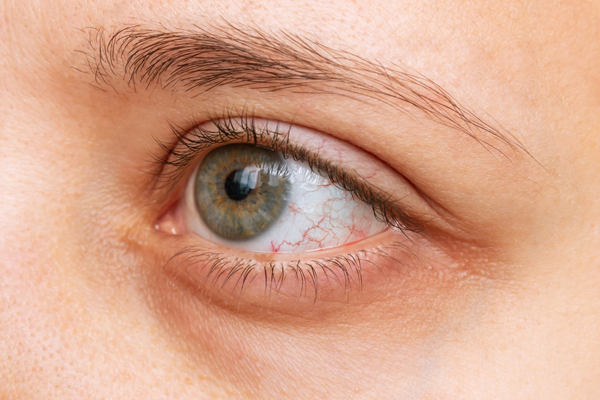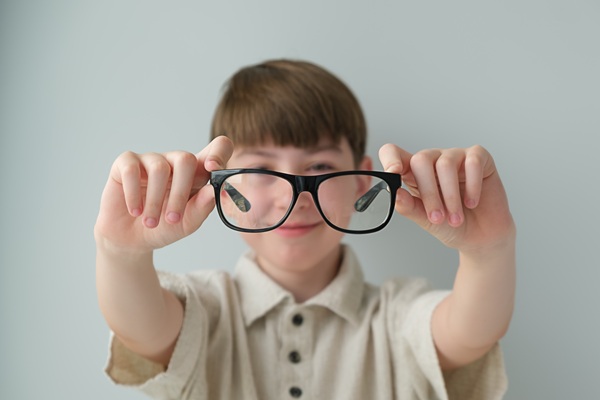An Optometrist Discusses Some Causes of Dry Eyes

Taking care of your eyes is important; after all, we all need to be able to see, but having dry eyes is no fun whatsoever. Having eyes that are dry can be much more than an irritation, however, and depending on the cause, the way they are treated can be different. Your eyes require lubrication to work properly, and eyes that are too dry can be much more serious than many folks may even realize. In this post, we’ll discuss some of the causes for why your eyes may become dry or not produce enough lubricant naturally and what your optometrist may be able to do about it.
What does it mean for eyes to be dry?
Your eyes are constantly being strained to try to see and be affected by all types of debris, air, and other contaminants. In order for the eyes to function properly with all of these influences, they need to constantly stay lubricated.
The way the eyes are normally lubricated is by tears. Our eyes naturally produce moisture (tears) that are spread across the outer surface of the eye every time we blink. This is the natural process of eye lubrication. The excess moisture drains into ducts in the inner corners of the eye.
When this process doesn’t occur properly, it results in a condition known as “dry eyes.”
Lubrication does much more than just make the eyes work properly; it helps to remove debris from around the eye, keep the eye clear of infections, and keep the surface of the eye smooth and clear.
Causes
There are two main reasons why a person’s eyes may become dry. The first reason is that they do not produce enough tears to naturally lubricate the eye. Tears are produced by glands around the eye, and there is a whole range of factors that can affect natural tear production.
Factors like a person’s age and the climate they live in can lessen tear production as well as medical conditions. Certain medications can alter tear production also regardless of other factors. In some cases, the exact cause for eyes becoming dry can be difficult to determine if there are a number of overlapping factors present.
The second reason has to do with the quality of the tears produced. Natural tears are made up of 3 essential components: liquid (water), oil, and mucus. Each component determines how well the eye is lubricated. For instance, if the tears do not contain enough mucus, they will not spread evenly across the surface of the eye. However, any sort of deficiency in the makeup of tears can result in dry conditions for the eyes.
Other factors that affect your eyes
We touched on this a bit already, but there are several things that can cause a person to have lessened tear production and, ultimately, dry eyes.
Age - As a person gets older, they start to produce fewer tears which can contribute to the drying of the eyes over time. This is why the risk increases over time, and patients should get regular checkups from their optometrist.
Gender - Women are at higher risk due to hormonal changes that occur throughout their lives, including during pregnancy, while using a contraceptive medication, and pre and post-menopause.
Health conditions - Certain health conditions can also lead to a problem with eye dryness. In particular, inflammatory diseases like arthritis can cause the eyes to dry. Other chronic conditions like thyroid disease and diabetes have also been known to contribute to eye dryness.
Along with having medical problems, taking certain medications can also induce dry eye symptoms. Allergy medicine, blood pressure medicine, and antidepressants are known to lower tear production.
Climate/weather - The climate you live in, as well as typical weather patterns, can have a drastic effect on whether your eyes produce enough moisture. In general, a dry climate means drier eyes. Extreme wind can also affect how well your eyes produce tears, as well as how much debris builds up around the eye in general.
Contact Lenses - Although contact lenses are a great way to improve your vision, wearing them without the proper lens solution and for extended periods of time can contribute to lowered tear production.
Learn more from your optometrist
The dryness can get worse over time. It's important to make sure that you visit your optometrist right away if you notice that your eyes are starting to become dry or you feel like you’re producing fewer tears. You'll get the help that you need to keep your eyes healthy.
Request an appointment here: https://www.texasoptical.net or call Texas Optical at (214) 771-7333 for an appointment in our Dallas office.
Check out what others are saying about our services on Yelp: Read our Yelp reviews.
Recent Posts
Dry eye treatment is important when occasional irritation becomes ongoing discomfort that interferes with daily activities. Many individuals experience dryness, burning, or a gritty feeling in the eyes from time to time. However, when symptoms start to affect reading, screen use, or time outdoors, a structured approach to diagnosis and care helps protect comfort and…
Myopia control focuses on slowing the progression of nearsightedness, primarily in children and teens, to help protect long-term eye health and day-to-day vision. Myopia occurs when the eye grows too long or the cornea curves too steeply, which causes distant objects to appear blurry. As the prescription increases, the risk of future eye disease also…
Retinal photography gives optometrists a detailed view of the back of the eye. When done regularly, they are often able to spot early signs of disease before symptoms affect daily vision. This advanced imaging tool helps create a clear record of eye health over time and supports smarter decisions about treatment and follow-up care. Learning…
Red, itchy eyes can affect your everyday comfort and reduce overall well-being. It is important to seek effective vision care from the first sign of irritation. Proper attention to symptoms, underlying causes, and healthy habits ensures stronger long-term eye health and greater day-to-day clarity. Redness and itchiness often stem from several common triggers. These include: Allergic…


